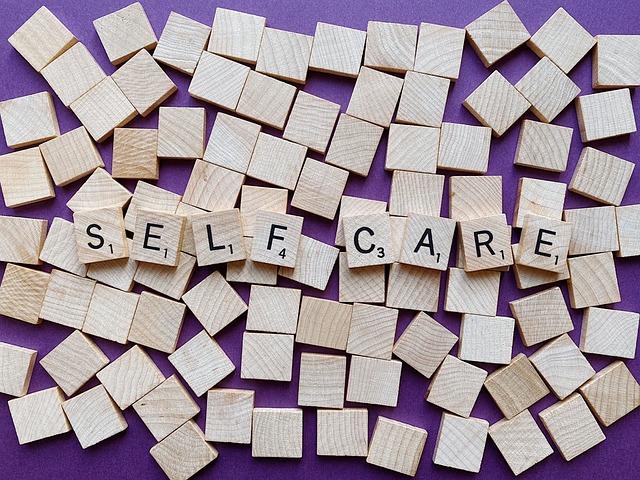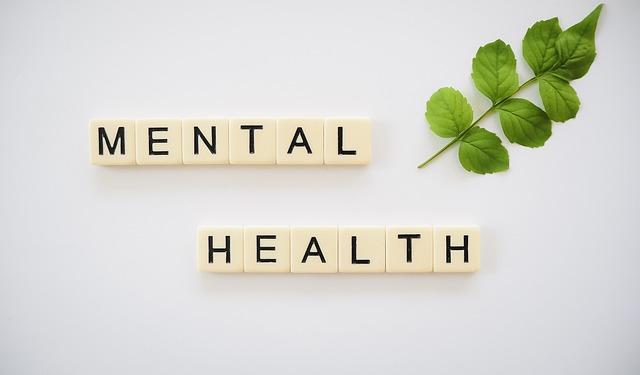In recent years, Libya has faced notable challenges that have placed immense strain on its healthcare system, particularly in the realm of mental health and psychosocial support (MHPSS). Amidst the backdrop of political instability and social upheaval, the mental well-being of Libyans has become a pressing concern, necessitating a robust response. In this context,UNICEF has emerged as a crucial player in integrating MHPSS into primary health care,recognizing that mental health is an essential component of overall health and recovery.This initiative seeks not only to address the immediate mental health needs of individuals affected by conflict and displacement but also to foster resilience within communities. By embedding psychological support into primary health care services,UNICEF aims to create a holistic approach that empowers healthcare providers and ensures access to vital services for the most vulnerable populations. this article explores the innovative strategies being implemented in Libya, highlighting the importance of mental health as part of a complete healthcare framework and the impact of these efforts on the lives of countless individuals across the nation.
The Current State of Mental Health Services in Libya

The landscape of mental health services in Libya has been markedly shaped by years of conflict and instability,significantly impacting access and quality. While the recognition of mental health as a crucial component of overall health is gaining momentum, many challenges persist. Key issues include a shortage of trained mental health professionals, inadequate resources, and a lack of comprehensive policies that prioritize mental health care. A report indicates that only 5% of health facilities in Libya offer dedicated mental health services, leading to a vast unmet need among the population.The integration of mental health support into primary health care is essential for creating more accessible services for vulnerable communities.
Despite these hurdles, efforts are underway to improve this critical area. Initiatives spearheaded by organizations like UNICEF aim to enhance the integration of mental health and psychosocial support within primary health care settings.Enhancing mental health services involves:
- Training primary health care staff to recognize and manage mental health issues.
- Establishing community-based support systems to destigmatize mental health conditions.
- Developing educational programs to raise awareness about mental health.
- Strengthening collaborations between health sectors and community organizations.
Addressing these areas is crucial for fostering a supportive habitat that empowers individuals facing mental health challenges. the need for a robust framework that encompasses both immediate relief and long-term mental health strategies cannot be overstated, particularly in light of libya’s socio-economic landscape, wich continuously evolves in response to external and internal pressures.
Challenges Facing the Integration of Mental Health in Primary Care

The integration of mental health services into primary care in Libya is fraught with numerous challenges that hinder effective delivery. One of the primary obstacles is the lack of trained personnel equipped to handle both physical and mental health concerns. Many healthcare providers are not adequately trained in recognizing and treating mental health issues, leading to missed diagnoses and inadequate care. Moreover, the stigma surrounding mental health persists in many communities, creating barriers for individuals seeking help. This stigma not only affects patients but also discourages health workers from engaging in mental health discussions, diminishing the overall quality of care.
Additionally, the limited resources allocated to mental health services pose a ample challenge. Many primary healthcare facilities struggle with insufficient funding, leading to inadequate infrastructure and a scarcity of necessary supplies. This situation is exacerbated by ongoing political and socioeconomic instability, which diverts attention and funding away from mental health initiatives. The integration process is further elaborate by a fragmented healthcare system, making collaboration between different sectors essential yet difficult to achieve. Without cohesive support and adequate training,the vision of comprehensive mental health care will remain elusive.
The Role of UNICEF in Promoting Psychosocial Support

UNICEF plays a crucial role in integrating mental health and psychosocial support (MHPSS) into primary health care systems in Libya. The association recognizes that adverse childhood experiences,conflict,and disaster can lead to significant mental health issues among vulnerable populations. By training healthcare providers on the importance of MHPSS, UNICEF ensures that mental well-being is prioritized alongside physical health. This approach not only enhances the capacity of local health systems but also fosters a more holistic view of health,acknowledging the interconnections between psychological and physical wellness.
To effectively deliver these essential services, UNICEF implements several initiatives, including:
- Community-Based Interventions: Engaging local communities to foster resilience and provide peer support.
- Capacity Building: Training health workers to identify and respond to mental health needs within primary care settings.
- awareness Campaigns: Raising public awareness about the importance of mental health and reducing stigma.
Through these strategies, UNICEF not only addresses immediate mental health needs but also works towards building a sustainable framework for psychosocial support that can endure in the long term.
Successful Models of Integration: Lessons from Other Countries

Several countries around the world have adeptly integrated mental health and psychosocial support into primary health care, offering valuable insights for Libya.As a notable example, Chile’s integration model emphasizes the importance of community health workers who provide essential mental health services alongside primary care practitioners. This approach ensures that mental health is treated holistically, with an emphasis on accessibility and community engagement. The training provided to these workers equips them with the skills needed to identify mental health issues early and provide appropriate support. Similarly, India’s National Mental Health Program demonstrates that involving primary health care systems can significantly reduce stigma and increase the treatment rates for mental health disorders. The integration of mental health care into routine health check-ups has proven beneficial and could be adapted to fit the Libyan context.
Key lessons from these successful models include:
- Training and Capacity Building: Invest in training primary health care providers.
- Community-Based Approach: Leverage community resources and local knowledge.
- Stigma Reduction: Conduct awareness campaigns to change perceptions about mental health.
- Policy Support: Ensure goverment policies facilitate the integration of mental health services.
Additionally, a comparative table showcasing the achievements of these countries could provide a clearer picture of effective strategies:
| Country | Key Strategy | Outcomes |
|---|---|---|
| Chile | Community health workers | Improved access and early intervention |
| India | Integration in primary care | Reduced stigma, increased treatment |
| Norway | public awareness campaigns | Higher public engagement in mental health services |
Strategic Recommendations for Improving Mental Health Services

To enhance the effectiveness of mental health and psychosocial support (MHPSS) within Libya’s primary health care framework, several strategic initiatives should be prioritized. Training health care providers in recognizing and addressing mental health issues will be pivotal. Curricula should include the following key elements:
- Understanding common mental disorders
- Crisis intervention techniques
- Referral pathways for specialized care
Additionally,efforts should be made to increase community engagement through awareness campaigns that destigmatize mental health. this could involve:
- Collaborating with local leaders to disseminate information
- Establishing support groups for affected individuals and families
- Utilizing social media platforms to reach a wider audience
The integration of MHPSS into existing health services can also be reflected in adopting a multidisciplinary approach. By ensuring that mental health professionals work alongside general practitioners, a comprehensive model of care can be fostered. Key components of this approach may include:
| Component | Description |
|---|---|
| Screening Tools | Implement standardized screening for mental health issues. |
| Follow-up Protocols | establish clear follow-up procedures for patients. |
| Resource Allocation | Allocate resources to support integrated services. |
Ultimately, fostering strong partnerships between governmental organizations, NGOs, and the private sector will strengthen the infrastructure needed for effective mental health care. Regular assessment and adaptation of strategies will ensure responsiveness to the evolving mental health landscape in Libya.
Building Community Awareness and Reducing Stigma Around Mental Health

In Libya, the integration of mental health and psychosocial support into primary health care represents a crucial step towards addressing the long-standing stigma surrounding mental health. Community education plays a vital role in this initiative, as it sheds light on the importance of mental well-being and its connection to overall health. By promoting understanding of mental health issues, the community becomes equipped to foster a more inclusive environment where individuals feel safe seeking help. Key strategies include:
- Engaging local leaders to advocate for mental health awareness
- Organizing workshops that destigmatize mental health challenges
- Utilizing media campaigns to spread positive narratives about mental health
Moreover, establishing support groups within communities allows individuals to share their experiences and find solace in shared struggles.Reducing stigma can lead to increased treatment seeking behaviors, encouraging those in need to access vital services without fear of discrimination. A vital component of this effort includes the following:
| Actions | Expected Outcomes |
|---|---|
| Community Outreach programs | Increased understanding of mental health |
| Training Health Professionals | Better identification and treatment of mental health conditions |
| Collaborative Activities | Stronger community ties and support networks |
Future Outlook
the integration of mental health and psychosocial support into primary health care services in Libya represents a significant step towards addressing the critical mental health needs of the population,particularly in the aftermath of years of conflict and instability. UNICEF’s efforts in this domain illuminate the urgent necessity to bridge the gap between mental health services and general health care,ensuring that all individuals,especially the most vulnerable groups,have access to comprehensive support.
As Libya continues its journey towards recovery and resilience,the active collaboration between health care providers,government bodies,and international organizations will be essential to fostering a holistic approach to health. By prioritizing mental health within the primary care framework, Libya not only acknowledges the profound impact of psychological well-being on overall health but also lays the groundwork for a healthier, more resilient society.
Through ongoing advocacy,training,and community engagement,initiatives like those led by UNICEF can pave the way for lasting change,transforming lives and empowering individuals to reclaim their mental health in the face of adversity. The journey ahead may be challenging,but with continued dedication and resources,Libya can build a stronger foundation for mental health care that prioritizes the well-being of its people.







